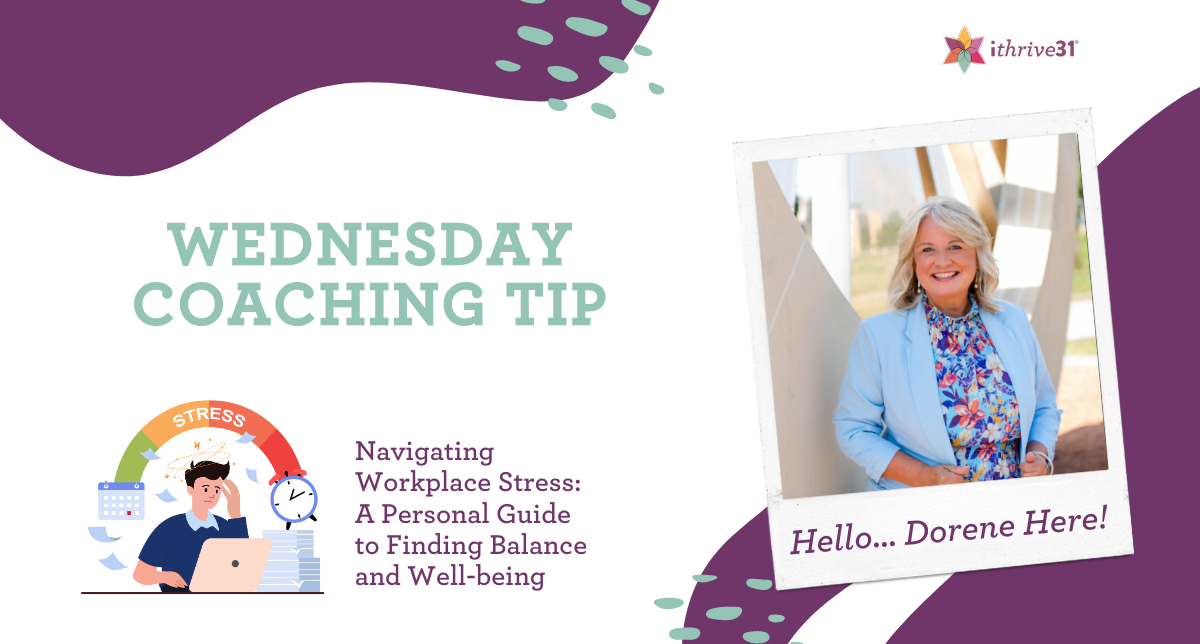
Navigating Workplace Stress: A Personal Guide to Finding Balance and Well-being
As a professional coach, I often help people through the personal challenges of their work situations. These challenges can be emotionally charged, which is natural when something important to us isn’t going well.
One client shared that she drove home from work crying daily and would get physically ill on Sunday evenings, knowing she had to face work on Monday. Her anxiety was significant. It quickly became clear that her job was taking an emotional, mental, and physical toll on her, and it likely wasn’t sustainable in the long term. I was grateful that she had someone to support her through this difficult time.
The reasons people are miserable in their jobs vary—sometimes it’s about other people, sometimes it’s the working conditions, and sometimes it’s the role itself. Whatever the reason, the internal pressures and emotions can be exhausting and, without a healthy way to approach them, can lead to lasting trauma and impact on others.
It’s important to remember that you have options. However, the reality of bills to pay and obligations to meet can leave people feeling trapped in difficult situations. Often, the first instinct is to quit and find a different job. While that may be the best solution in some cases, there are also actions you can take to manage workplace stress.
Tips for Managing Workplace Stress
- Keep Perspective: Remember, work is just one part of your life, not the entirety. Be intentional about compartmentalizing the role your job plays in your overall life. Pay attention to the hours you dedicate to it, especially outside of work. Turn off notifications and guard your personal time. Remind yourself that your identity is not defined by your job. Focus on the fact that it’s the situation that’s challenging, not you as a person.
- Invest in Other Areas of Life: Engage in activities that keep your mind and body active. Physical exercise releases endorphins that boost well-being. Pursue hobbies, try something new, or spend time with friends. Avoid conversations that revolve around work negativity—this is your time for positivity. Consider volunteering, as helping others can also help you feel more balanced.
- Be Practical: Write down ideas that could improve your situation. What actions can you take in the next 31 days to make your job better? Consider taking a few days off or a vacation. Seek guidance from a trusted resource. Be honest with yourself about what changes you need to make, and reflect on the effectiveness of these actions after 31 days. Adjust as necessary, and continue taking positive steps.
- Set a time frame: If, after making an intentional effort, things aren’t improving, it’s crucial for your well-being to find a better solution. This might mean seeking a new position or changing jobs. Be open to potential sacrifices, such as taking a demotion or pay cut, if it means finding a healthier work environment.
- Learn the Lessons: Life is about learning, especially from challenging situations. Reflect on what this experience has taught you. What would you do differently in the future? Own your part in the work challenge, and recognize what you did well, such as setting a plan and timeframe. Use these lessons to become stronger and better equipped for future challenges.
You take yourself with you wherever you go, so invest in your well-being. If you’re struggling at work, remember that you have options and the strength to make changes that support your overall happiness and health.
_____________
ithrive31 blends leadership coaching and life coaching—guiding leaders and professionals to unleash their full potential in order to thrive at work and at home. If you enjoy our content, we invite you to subscribe to our newsletter here.
Meet our coaches:
Miki Huntington, M.A., CPC Lauren Foxwell, MBA Stacey Walter Dorene MacVey, PCC Marli Overman, PHR, CPC

